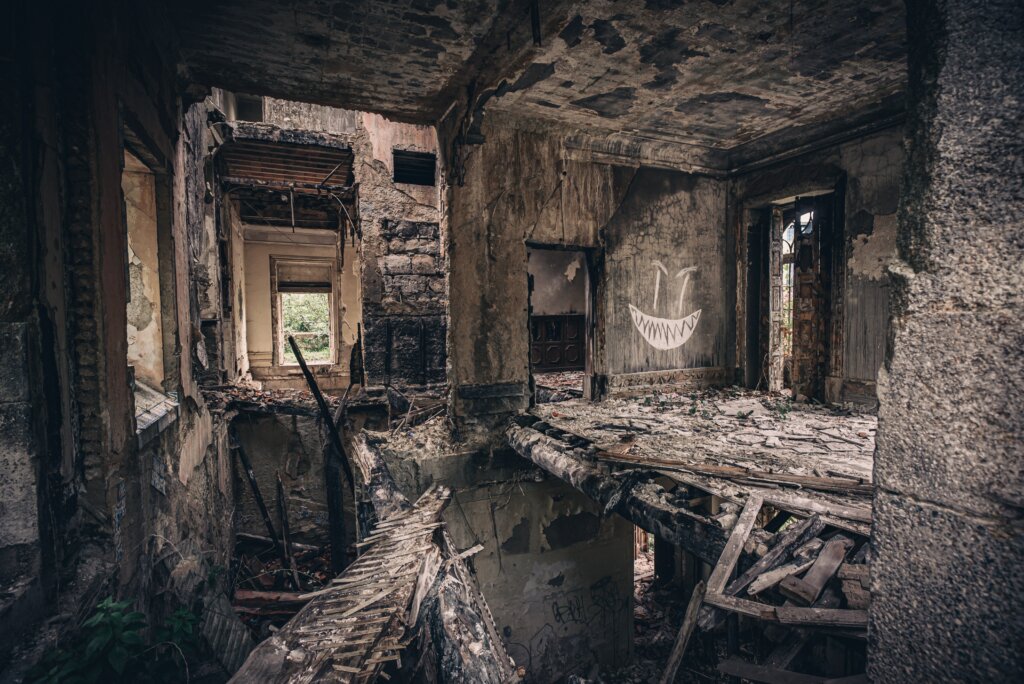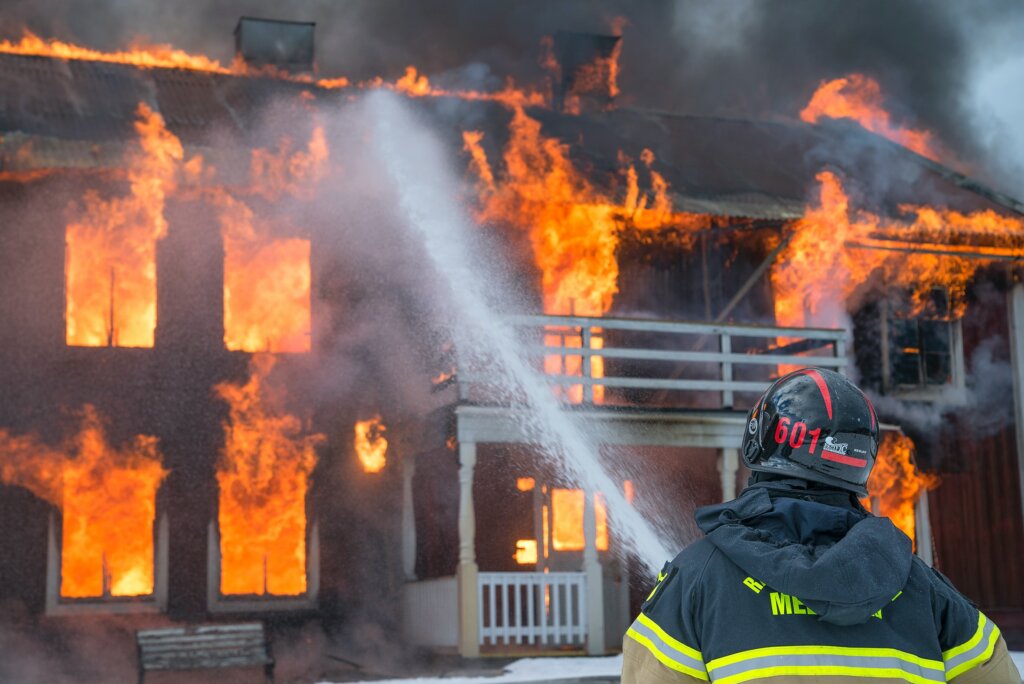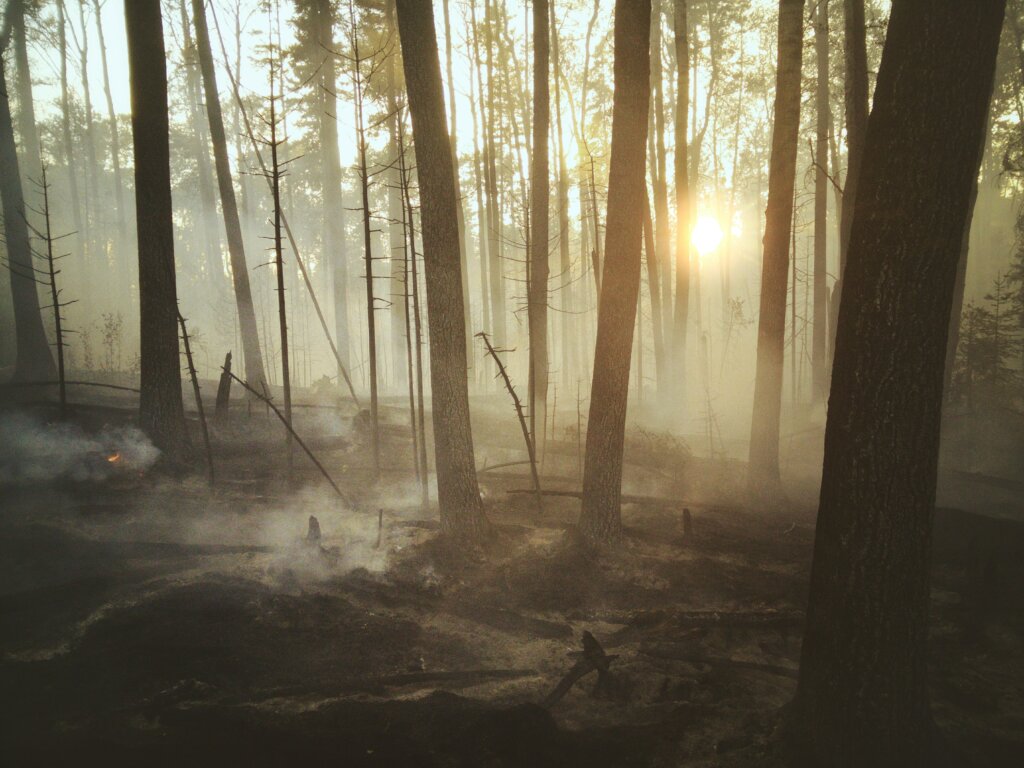How To Sell My Fire Damaged House in Florida

House fires can start anywhere and endanger anyone.
Even a relatively small house fire can lead to expensive damage and loss of life. There are more than 350,000 home fires every year in America, according to the National Fire Protection Association. Those fires result in damages totaling $6-$8 billion. Some of the most common causes of fire-damaged property in Florida: candles, cooking, and faulty washing machines or dryers. Sometimes a fire-damaged home leads to owners wanting to sell. Other times, a fire damages a home that will go up for sale soon or is already on the market.
Either way, if you’re thinking about how to sell my fire-damaged house in Florida, here’s everything you need to know.
How to Sell My Fire Damaged House in Florida: The First Steps

First, you’ll need to get an accurate, full picture of the extent of the damage. If there is major fire damage, before you enter your home you may need permission from your local fire department. You should also contact your utility provider to let them know about the fire and then call your homeowner’s insurance company to start claims.
Next, be sure to document the damage through video, photos, and complete notes. You’ll want to share the information with a fire restoration expert if needed to begin the process of cleanup needed to sell your fire-damaged property. You can do a little bit on your own — open the windows to eliminate smoke, clean hard services — but you’ll likely need some help when it comes down to how to sell my fire-damaged house in Florida.
Selling a Fire Damaged Property in Florida: Restoration

Fire damage doesn’t mean you can’t successfully sell your home. Before you put it on the market, restoring it to its previous state should be your No. 1 priority. After assessing the damage officially through your homeowner’s insurance agent, start to address the damage as well. There may be smoke damage throughout the home, such as stains on walls and floors, and can impact your HVAC system and areas such as the roof.
While some of the cleanups may be done directly by the homeowner, if you’re preparing to sell it may be worth contacting a fire remediation company. In addition to harmful smoke and burns, there may be necessary mold removal and flooding issues from water used to contain the blaze. That’s why it’s important not to simply just cover up fire damage to your home. Restoring your property to as close as it was before fire damage will have a big impact on how to sell my fire-damaged house in Florida.
Another benefit of consulting restoration experts: You may determine that the overall cost of repairs means selling a fire-damaged property in Florida means putting it on the market as-is, especially if the damage dictates the need to rebuild your home completely.
Study Your Homeowner’s Insurance Carefully
Much of how to sell my fire-damaged house in Florida may be dictated by what’s covered by your homeowner’s insurance.
Your policy coverage may either cover fire-related costs through its cash or the replacement value. Policies don’t just cover your possessions, they can possibly help pay for structural damage on your property and even your landscaping. Once you get a good idea of the extent of the damage and what your insurance payout may be, you may have a better of how best to sell your home. If there is minor fire damage or the damage is contained to small areas and not areas of the home that buyers will pay close attention to, such as the master bedroom, kitchen, or bathrooms.
Figure Out What You Need to Disclose

How to sell my fire-damaged house in Florida includes the important step of the seller’s disclosure to a buyer. Each state has different disclosure rules, and in Florida, the seller and relator must disclose defects to the property that are not easy to see.
It can help the selling a house process along if you are forthright about the type of fire that causes the damage, what was affected by it, and the steps you took to address each issue. If your home’s fire was caused by faulty electrical wiring, that will look different to buyers compared to a fire caused by cooking or cigarette use. The good news is that the housing market is so strong that many buyers may not hesitate to make big offers on homes with fire damage.
Be Patient and Consider Your Options
Selling a fire-damaged property in Florida usually means you can’t rush the sale.
If you needed to sell quickly, you may need to adjust your expectations that reflect the time it will take for property rehabilitation and the hard truth that fewer buyers may be interested in the home. How to sell my fire-damaged house in Florida could mean sticking with a traditional real estate agent, but it may also mean you should look for alternatives. For example, there are many independent businesses that specialize in purchasing homes with different types of damage and usually renovating them to sell again.
Some of these companies even focus solely on buying fire-damaged properties. And if an investor is willing to buy the home without repairs combined with money received from insurance, you may be the profit you want between the two payments. There are pluses and minuses to selling your fire-damaged home to these types of businesses. You may get less than fair market value and could have to move out sooner than you expected, but you also sometimes don’t have to pay for remediation out of your own pocket and you often don’t have to pay closing costs.
Bonus: If your home is deemed uninhabitable after a fire, it’s a safe bet that such businesses will buy your home quicker compared with listing it traditionally, fielding different offers, and having to answer questions about the damage from buyers represented by an agent.

